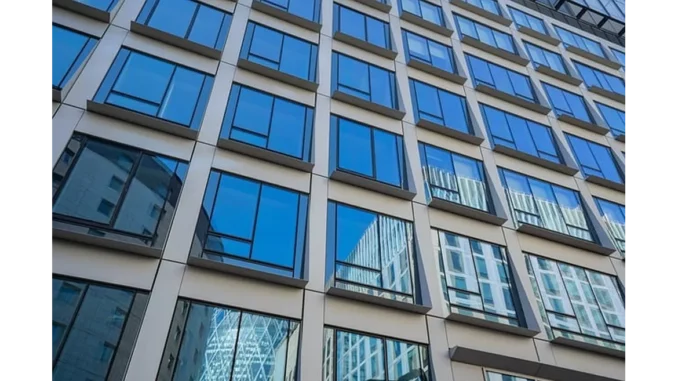
The commercial real estate sector is undergoing a decisive transformation, driven by the imperative of sustainability. What was once a niche consideration has now become a central tenet of successful real estate development and management. With increasing regulatory pressures and evolving market expectations, the demand for eco-friendly commercial spaces is on the rise. This shift is not only reshaping how buildings are constructed but also how they are managed and valued.
Focus360 Energy: property compliance services – pre-planning to post-construction. Learn more.
At the heart of this transformation is the integration of sustainable innovation—leveraging advanced technologies, smart building systems, and green certifications to meet both environmental and financial objectives. Sustainable practices in commercial real estate go beyond reducing carbon footprints; they enhance asset value, attract tenants, and ensure long-term viability.
Green building certifications such as LEED (Leadership in Energy and Environmental Design), WELL, and BREEAM (Building Research Establishment Environmental Assessment Method) have become critical in establishing and validating sustainable practices in commercial real estate. These certifications evaluate a building’s environmental performance across various metrics, including energy use, water efficiency, and indoor environmental quality, providing both recognition and a roadmap for sustainability.
Achieving such certifications can substantially increase a building’s market value and tenant appeal. Certified buildings are often perceived as high-quality assets, attracting tenants who prioritise sustainability. Moreover, these certifications can improve long-term asset performance by lowering operational costs, enhancing energy efficiency, and ensuring compliance with evolving regulations.
A prime example is the Empire State Building, which achieved LEED Gold certification following a significant retrofit. By incorporating energy-efficient systems and sustainable materials, the building reduced its energy consumption by 38%, showcasing how certification can enhance both value and sustainability.
The integration of renewable energy sources such as solar, wind, and geothermal is transforming building operations. Solar panels, wind turbines, and geothermal systems are becoming increasingly common as the demand for green real estate grows. These renewable energy solutions offer numerous benefits, including lower energy costs, improved environmental performance, and adherence to green building standards.
The role of technology in reducing energy consumption cannot be overstated. IoT-enabled systems, intelligent HVAC systems, smart lighting, and automated energy management platforms optimise resource use by adjusting settings based on real-time data and usage patterns.
These technologies contribute significantly to energy savings, improved building performance, and long-term sustainability, making them indispensable in eco-friendly commercial real estate.
Sustainability is more than an ethical obligation; it is a strategic business decision with tangible financial benefits. Long-term cost savings are achieved through reduced energy consumption and enhanced operational efficiency. Sustainable building practices lower energy bills, decrease maintenance costs, and minimise environmental impact, resulting in a better ROI and reduced total cost of ownership (TCO). Companies like Google and Microsoft, which invest in green buildings, report both financial and operational benefits from their sustainability initiatives.
Sustainability also enhances corporate social responsibility (CSR) efforts and strengthens brand reputation. By adopting sustainable practices, companies differentiate themselves, attracting environmentally conscious investors and high-profile tenants.
This approach enhances market appeal and positions companies as leaders in the green economy, drawing tenants and investors who value environmental responsibility.
Smart building technologies are crucial in advancing sustainability. These systems, which combine automation and data analytics, enable buildings to optimise resource use, reduce waste, and improve environmental performance.
From smart HVAC systems that adjust based on occupancy to intelligent lighting systems that conserve energy, these technologies reduce environmental impact while lowering operational costs.
By leveraging real-time data, building managers can continuously improve operations, making sustainability goals more achievable and efficient.
Sustainability is now a critical consideration in commercial real estate, essential for long-term success. By adopting green building certifications, renewable energy solutions, and energy-efficient technologies, companies can achieve both financial and environmental benefits. Smart building technologies are revolutionising resource management, driving efficiency, and reducing costs.
As the industry evolves, now is the time to invest in sustainable innovation. Embrace these strategies to enhance your projects and build a sustainable future.
Let’s build tomorrow, today.


Be the first to comment